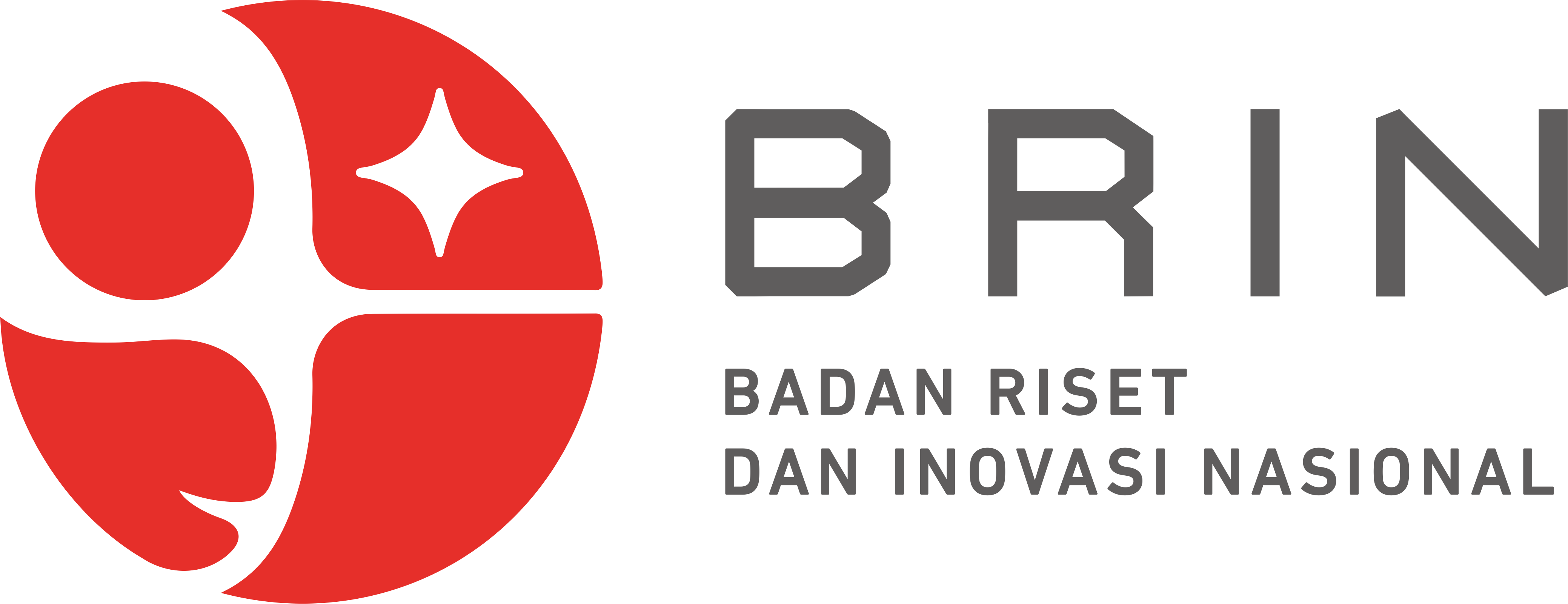Analysis of recommendations for recipients of COVID-19 cash social assistance financing the ministry of social affairs
Erliyan Redy Susanto(1*); Rusliyawati Rusliyawati(2); Agus Wantoro(3); Citra Andini Purnama(4); Itce Diasari(5);
(1) Universitas Teknokrat Indonesia
(2) Universitas Teknokrat Indonesia
(3) Universitas Teknokrat Indonesia
(4) Universitas Teknokrat Indonesia
(5) Universitas Teknokrat Indonesia
(*) Corresponding Author
AbstractIn order to solve the problems that exist in the economic aspect due to the COVID-19 pandemic in Indonesia, the government has implemented various programs related to economic recovery. One of these programs is cash social assistance (BST). During the implementation of the social assistance program in various regions, it was reported that the recipients of the program were not properly targeted. Based on the results of a survey from one of the leading universities in Indonesia, it is known that many social assistance programs related to the impact of the COVID-19 pandemic are suspected to have not been in accordance with their designation. Based on this, the research was conducted in Bandar Lampung City. The purpose of this study is to conduct an analysis for recommendations for prospective BST recipients, namely people affected by Covid-19. The method used is profile matching by taking samples in the Jagabaya village, Bandar Lampung City. The criteria used include the work of the head of the family, wife's work, home status, number of dependents and ID cards. Based on the results of an interview with one of the BST officials in Bandar Lampung City, in this study the criteria were grouped into core factors and secondary factors. The results of the research can be used by stakeholders as recommendations for prospective BST recipients in Bandar Lampung City. Based on the results of an interview with one of the BST officials in Bandar Lampung City, in this study the criteria were grouped into core factors and secondary factors. The results of the research can be used by stakeholders as recommendations for prospective BST recipients in Bandar Lampung City. Based on the results of an interview with one of the BST officials in Bandar Lampung City, in this study the criteria were grouped into core factors and secondary factors. The results of the research can be used by stakeholders as recommendations for prospective BST recipients in Bandar Lampung City. KeywordsDecision Support System; Social Grants; Covid-19 Pandemic Effect; Profile Matching
|
Full Text:PDF |
Article MetricsAbstract view: 636 timesPDF view: 208 times |
Digital Object Identifier https://doi.org/10.33096/ilkom.v14i2.1138.126-133 https://doi.org/10.33096/ilkom.v14i2.1138.126-133
|
Cite |
References
F. Sembiring, M. T. Fauzi, S. Khalifah, A. K. Khotimah, and Y. Rubiati, “Sistem pendukung keputusan penerima bantuan Covid 19 menggunakan metode Simple Additive Weighting ( SAW ),” J. Sist. Inf. dan Telemat., vol. 11, no. 2, pp. 97–101, 2020.
D. S. Purnia, S. Rahmatullah, and A. Rifai, “Pengembangan implementasi aplikasi bantuan sosial berbasis mobile pada dinas sosial,” Indones. J. Comput. Inf. Technol., vol. 4, no. 2, pp. 162–170, 2019.
I. W. T. Winarta, A. Agung, G. Raka, I. Made, and U. Warmadewa, “Evaluasi kebijakan penyaluran dana bantuan sosial di pemerintah kabupaten Gianyar,” J. Adm. Publik, vol. 5, no. 1, pp. 28–42, 2020.
W. Rahmansyah, R. A. Qadri, R. T. S. Ressa, A. Sakti, and S. Ikhsan, “Pemetaan permasalahan penyaluran bantuan sosial untuk penanganan COVID-19 di Indonesia,” J. Pajak dan Keuang. Negara, vol. II, no. I, pp. 90–102, 2020.
R. Umar, A. Fadlil, and Y. Yuminah, “Sistem pendukung keputusan dengan Metode AHP untuk penilaian kompetensi soft skill karyawan,” Khazanah Inform. J. Ilmu Komput. dan Inform., vol. 4, no. 1, p. 27, 2018, doi: 10.23917/khif.v4i1.5978.
E. R. Susanto, A. S. Puspaningrum, F. Teknik, S. Informasi, and T. Komputer, “rancang bangun rekomendasi penerima bantuan sosial berdasarkan data kesejahteraan rakyat,” vol. 15, no. 1, pp. 1–12, 2019.
E. C. Özcan, S. Ünlüsoy, and T. Eren, “A combined goal programming – AHP approach supported with TOPSIS for maintenance strategy selection in hydroelectric power plants,” Renew. Sustain. Energy Rev., vol. 78, no. February, pp. 1410–1423, 2017, doi: 10.1016/j.rser.2017.04.039.
A. Setiadi, Y. Yunita, and A. R. Ningsih, “Penerapan metode Simple Additive Weighting(SAW) untuk pemilihan siswa terbaik,” J. Sisfokom (Sistem Inf. dan Komputer), 2018, doi: 10.32736/sisfokom.v7i2.572.
Z. Wu and G. Abdul-nour, “Comparison of Multi-Criteria Group Decision-Making Methods for urban sewer network plan selection,” pp. 26–48, 2020.
A. Khaira and R. K. Dwivedi, “A State of the art review of Analytical Hierarchy Process,” in Materials Today: Proceedings, 2018, vol. 5, no. 2, doi: 10.1016/j.matpr.2017.11.663.
S. Vakilipour, A. Sadeghi-niaraki, M. Ghodousi, and S. Choi, “Comparison between Multi-Criteria Decision-Making Methods and Evaluating the Quality of Life at Different Spatial Levels,” MDPI Sustain. J., vol. 13, no. 4067, pp. 1–36, 2021.
A. Azimifard, S. H. Moosavirad, and S. Ariafar, “Selecting sustainable supplier countries for Iran’s steel industry at three levels by using AHP and TOPSIS methods,” Resour. Policy, vol. 57, no. December 2017, pp. 30–44, 2018, doi: 10.1016/j.resourpol.2018.01.002.
Y. W. Paranthia, S. Muhammad Zarlisb, Saifullahd, and I. O. Kirana, “Metode profile matching menentukan penerima bantuan perbaikan rumah pada kecamatan siantar martoba,” JIF, vol. 8, no. 1, pp. 66–76, 2020.
A. Wantoro, A. Syarif, K. Muludi, and K. Nisa, “Implementation of fuzzy-profile matching in determining drug suitability for hypertensive patients,” IOP Conf. Ser. Mater. Sci. Eng., vol. 857, no. 1, 2020, doi: 10.1088/1757-899X/857/1/012027.
C. Gao, “Cloud-assisted privacy-preserving profile-matching scheme under multiple keys in mobile social network,” Cluster Comput., vol. 22, pp. 1655–1663, 2019, doi: 10.1007/s10586-017-1649-y.
N. L. W. S. R. Ginantra, “Decision Support System in recommending climbing tourism destinations with Profile Matching method,” IOP Conference Series: Materials Science and Engineering, vol. 835, no. 1. 2020, doi: 10.1088/1757-899X/835/1/012054.
Kusrini, Konsep Aplikasi Pendukung Keputusan. Jakarta, 2007.
Sugiyono, Metode Penelitian Kuantitatif Kualitatif dan R&D. Bandung: Alfabeta, 2017.
Jogiyanto, Konsep Sistem Informasi - Tata Sutabri - Google Books. 2010.
Refbacks
- There are currently no refbacks.
Copyright (c) 2022 Erliyan Redy Susanto, Rusliyawati, Agus Wantoro, Citra Andini Purnama, Itce Diasari

This work is licensed under a Creative Commons Attribution-ShareAlike 4.0 International License.







